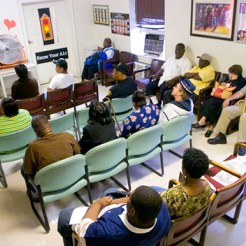Happy Fourth!
I grew up suspicious of a country where they lived stealth lives. My dad never wore a kippah (head covering) at work. A fedora on the way in and on the way home worked, but blatant Jewish exhibitionism was something he shied from at Luxor International, which he inherited from his father. A city where “our folks” were kept out of Fieldston area in the Bronx. Where accusations of god-killing were part of hanging in Riverdale, by almost every measure a “safe” place for Jews, if not any tinted minority.
I moved to Israel, to be with “my people,” where I was told I wasn’t, because I wasn’t born there and therefore couldn’t have an opinion. Of being a “Saboni” (soft, like soap). With all that. I never intended to leave Israel.
And then I did, moved to a strange, arid version of America I’d never experienced, but which resembled, in flora and fauna, the Galilee of my past life. I held my mental nose for years.
And then, over the years, I saw the promise of America, buried under layers of vapid manners and marketing. It’s taken close to a quarter century, but I’d begun to embrace the promise of this country, especially as Israel has slid down the slippery slope of ideological and religious fanaticism.
Promises in danger of breaking. A future squandered. A militant, anti-intellectual theocracy is in the offing, a front shill for the cold calculation of Mammon worshipers who cynically used religion and the fear of the Other in a way scarily reminiscent of Nazi Germany in the 1930s.
But it’s not. We still have the rule of law. As a favorite writer of mine said in a book about dangerous foes, “if they could all get pointed in the same direction for more than five minutes, they’d be dangerous.” We have jurisdictions from cities to counties to states to the federal governments.. And courts. And press.
We have attacks on the independence of all of these, along with a worship of the military that’s gone well beyond appreciating their service, while not providing its veterans with anything close to the care accolades might lead one to expect.
We have the power of the ballot box and, frankly, the demographics are on our side. The old white folks, the scared, disempowered-while-simultaneously-privileged young whites. The hate groups. They’ve lost, which accounts for their panic, and this election.
It’s not too late to fight for our country. And I’m sticking it out, because, crappy democracy that it might be, it’s the best one around. Still. Happy Fourth!
 As a Jewish atheist I enjoy the rituals of my people. While I don’t enjoy laying t’fillin (putting on phylacteries)—although I remember how—I’ve always had a visceral sense memory when seeing or touching the prayer book my dad used.
As a Jewish atheist I enjoy the rituals of my people. While I don’t enjoy laying t’fillin (putting on phylacteries)—although I remember how—I’ve always had a visceral sense memory when seeing or touching the prayer book my dad used.
 My current WIP has a cast of characters, a bunch of whom are all first seen by my POV character in a room together. My first draft of this was, upon re-reading, a flood of details that made the narrative not only drag, but flounder.
My current WIP has a cast of characters, a bunch of whom are all first seen by my POV character in a room together. My first draft of this was, upon re-reading, a flood of details that made the narrative not only drag, but flounder.